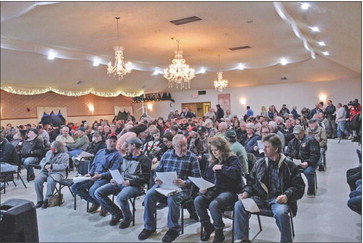Wind turbines causing turmoil among Marathon County residents


Local residents expressed their concerns over a recent influx of interest in farmland to be used for harvesting wind energy in both Marathon and Clark counties.


Local residents expressed their concerns over a recent influx of interest in farmland to be used for harvesting wind energy in both Marathon and Clark counties.